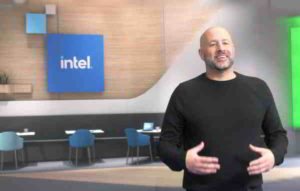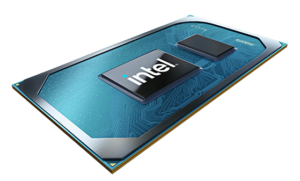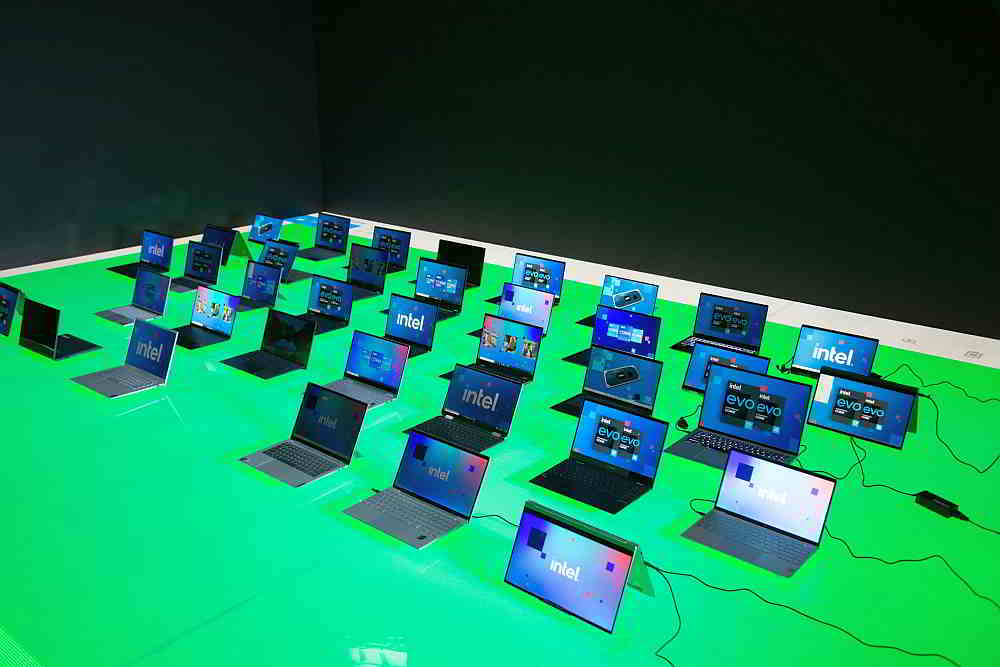At a CES news conference, Intel gave is a peek into the future of personal and business computing and said it will introduce more than 50 processors, resulting in more than 500 new designs for laptops and desktops coming to market in 2021. Intel launched new processors for business, education, and gaming platforms. In addition, Intel also gave a preview of the next-generation “Rocket Lake” and “Alder Lake” Technologies. Apart for scaling up performance even further, features like hardware-based security are keenly expected. Hardware-based security uses silicon-enabled artificial intelligence (AI) threat detection to help stop ransomware and crypto-mining attacks. Another notable feature coming in its processors will be the biggest Wi-Fi improvement in 20 years, with integrated Intel Wi-Fi 6/6E (Gig+).

Gregory Bryant, Executive Vice President, Intel
“Only Intel has the breadth of products spanning multiple architectures; the large, open ecosystem; sheer scale of manufacturing footprint; and deep technical expertise customers need to unlock opportunities in this era of distributed intelligence,” said Intel Executive Vice President Gregory Bryant. “With an intense focus on execution for our core products and across our broader portfolio, we’re introducing a series of leadership products at CES with more following throughout the year.”
Some of the key announcements and introductions at CES include:
- The launch of 11th Gen Intel Core vPro platform and Intel Evo vPro platform, with the highest performance yet and most comprehensive hardware-based security.
- New N-series 10-nanometer Intel Pentium Silver and Intel Celeron processors that with balance of performance, media and collaboration for education systems.
- A new line of 11th Gen Intel Core H-series mobile processors for gaming platforms that deliver for balance of mobility and enthusiast-level gaming.
- Intel also previewed products coming to market later in 2021, including 11th Gen Intel Core S-series desktop processors (code-named “Rocket Lake-S”) and its next-generation processors (code-named “Alder Lake”).
Processors for Business
For business, Intel introduced the 11th Gen Intel vPro platform, with what it claims to be the world’s most comprehensive hardware-based security. The new 11th Gen Intel Core vPro processors unveiled today are business processors for thin-and-light laptops and, when combined with the new Intel Core vPro platform, offer:
- Intel Hardware Shield, providing the “world’s most comprehensive security” deep in hardware for business, and the industry’s first silicon-enabled artificial intelligence (AI) threat detection to help stop ransomware and crypto-mining attacks. It is also equipped with Intel Control Flow Enforcement Technology, ground-breaking technology to help shut down an entire class of attacks that long evaded software-only solutions.
- Intel 10-nanometer (nm) SuperFin technology, delivering industry-leading performance, Intel Iris Xe graphics and the world’s biggest Wi-Fi improvement in 20 years – with integrated Intel Wi-Fi 6/6E (Gig+) that enables up to six times faster uploads and downloads in the office and nearly three times faster speeds at home versus standard Wi-Fi 5.
- Eight times better AI performance, enabling businesses new compute power to keep pace with the fast-changing software ecosystem, and up to 2.3 times faster creation and video editing compared to the previous generation.
- Up to 23% faster productivity than the competition when using apps like Office 365 and the best business collaboration experience, enabling more than 50% faster office productivity compared to the competition while on a video conference call.
Intel also launched the Intel Evo vPro platform, for business users. Laptop designs are verified on the Intel Evo vPro platform are stylish, thin and light and provide an amazing immersive visual experience. They also offer remarkable responsiveness, instant wake and real-world battery life. More than 60 new laptops from top manufacturers will be available this year, combining the security and manageability of vPro and the amazing on-the-go experiences of Intel Evo. Additionally, Intel announced Intel Evo Chromebooks, enabling a new class of premium Chromebooks.
Processors for Education Platform
Use of the PC as an essential education tool has accelerated greatly worldwide over the past year. To meet the growing needs of students, Intel introduced new N-series Intel Pentium Silver and Celeron processors with an unmatched balance of performance, media and collaboration for education systems. The processors are designed on Intel’s 10nm architecture, delivering up to 35% better overall application performance and up to 78% better graphics performance gen on gen. This enables smooth application performance and browsing while multitasking, plus advanced camera and connectivity features for an enriched video conferencing and viewing experience.
As critical as advancing technology for meeting students’ evolving needs is putting laptops in their hands. Even with accelerated adoption, up to 30% of U.S. school children still lack internet or laptops for learning, and the pandemic has only exacerbated those requirements. During the last 15 years, Intel has invested more than $1 billion globally in education, including training for more than 15 million teachers. Last April, Intel launched the Online Learning Initiative and has provided hundreds of thousands of devices, as well as connectivity and resources, to students worldwide. Intel will continue these efforts in 2021 along with partners from inside and outside the technology industry.
New Processors for Gaming Platforms

Intel Core H35 Mobile processor
Intel launched a new line of 11th Gen Intel Core H-series mobile processors for gaming that extends the 11th Gen mobile family of products and pushes the limits of what’s possible for enthusiast-level gaming in laptops as thin as 16 millimeters. Led by the Intel Core i7 Special Edition 4-core processor with up to 5 gigahertz (GHz) Turbo, these H35 processors are specifically targeted for ultraportable gaming. They feature new Gen 4 PCIE architecture for connecting to the latest discrete graphics and deliver amazingly low latency and immersive game play on the go.
At CES, Acer, ASUS, MSI and Vaio announced new systems powered by the 11th Gen Intel Core H35-series processor for ultraportable gaming, with more than 40 designs from top manufacturing partners launching in the first half of 2021.
For mobile enthusiasts who want desktop-caliber gaming and creation performance, Intel also announced an 8-core processor that will start shipping later this quarter. This platform is unique in the industry with features that would normally only be found in high-end desktop systems – including up to 5GHz, Gen 4 PCIE x20 architecture for fastest storage and discrete graphics, and Intel Killer Wi-fi 6E (Gig+).
Preview of Next-Generation “Rocket Lake” and “Alder Lake” Technologies
Intel also demonstrated next-generation desktop technology for gamers and enthusiasts coming to market in 11th Gen Intel Core S-series desktop processors (“Rocket Lake-S”). Featuring 19% gen-over-gen instructions per cycle (IPC) improvement for the highest frequency cores and headlined by the Intel Core i9-11900K, these processors will bring even more performance to gamers and PC enthusiasts at launch in the first quarter of 2021.
Additionally, Intel demonstrated “Alder Lake,” the next-generation processor that represents a significant breakthrough in x86 architecture and Intel’s most power-scalable system-on-chip. Due in second half of 2021, Alder Lake will combine high-performance cores and high-efficiency cores into a single product. Alder Lake will also be Intel’s first processor built on a new, enhanced version of 10nm SuperFin and will serve as the foundation for leadership desktop and mobile processors that deliver smarter, faster and more efficient real-world computing.
DIGITAL CREED is officially registered for media participation at CES 2021.









